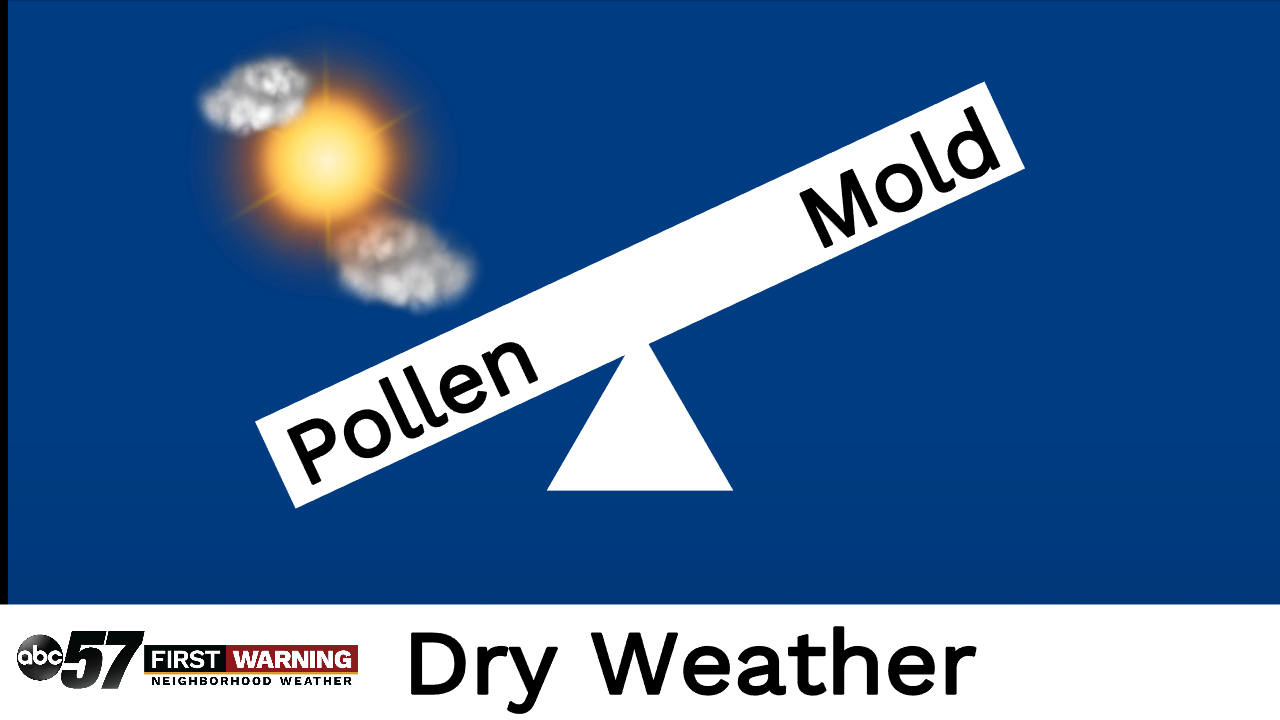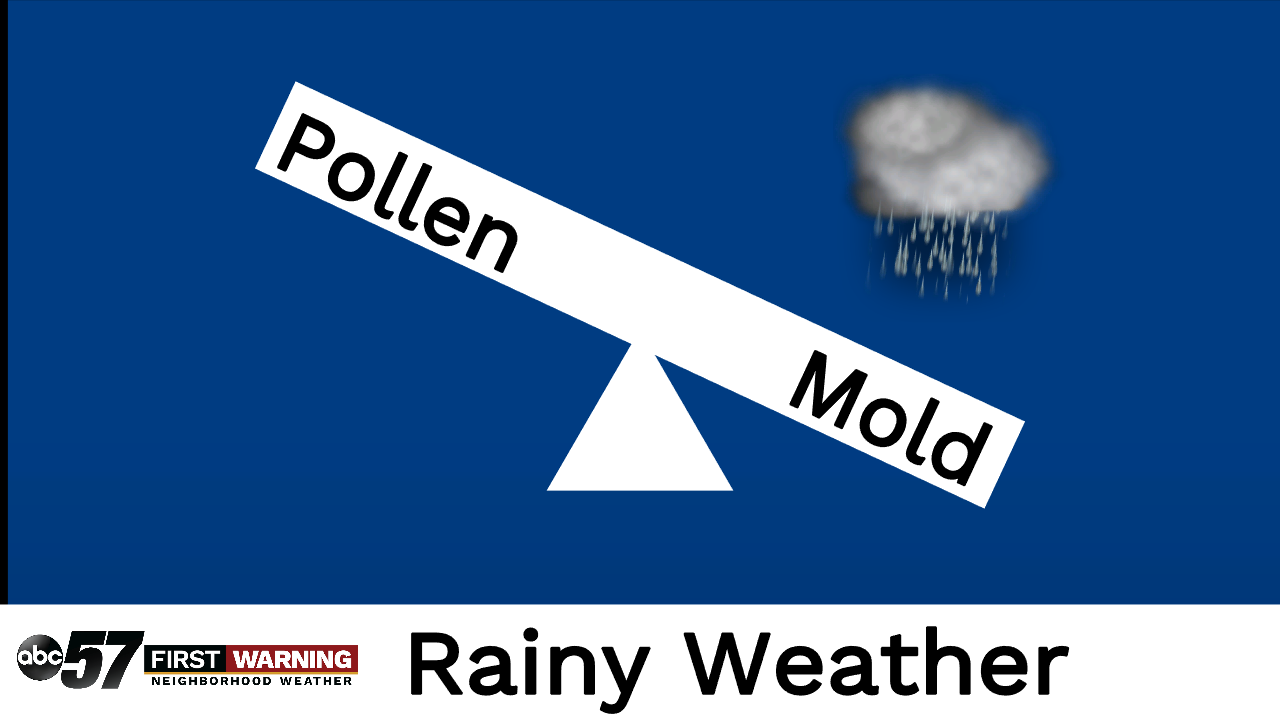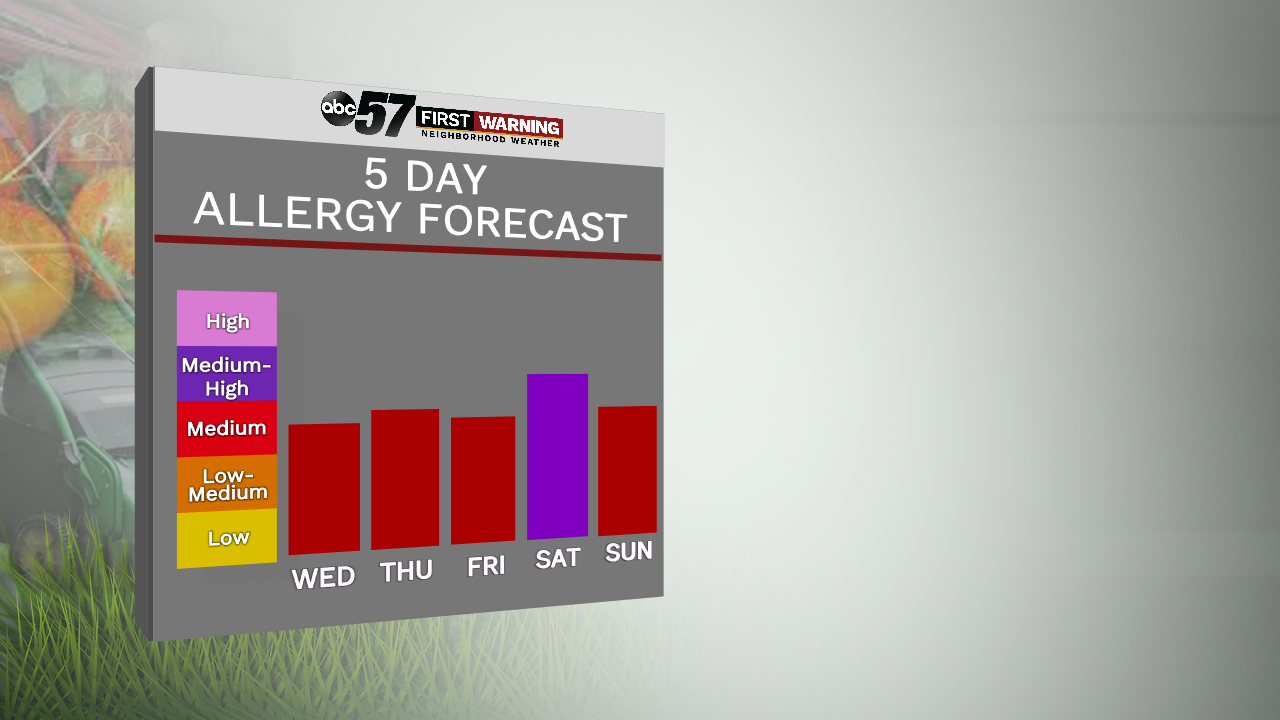Some relief could be on the way if you've recently had sniffles and sneezes. Rain can lower some pollen counts.
Anytime you've heard meteorologists talk about pollen and allergen counts, you've probably heard us say, "we'll see some relief when we get some rain." Why is this?
When it is dry, it is easier for trees to produce pollen. Dry air, combined with wind, makes it easy for pollen to blow around and travel. If you're sensitive to pollen, dry weather isn't great for you.
Light, continued rain showers, do offer some relief. The pollen can't travel as far, and the count is lower.
If there is a sudden downpour of rain, however, that can lead to a sudden burst in sensitivity, as pollen hitting the ground in the heavy rain causes it to explode quickly.
Light rain showers, although key to suppressing pollen, aren't necessarily a good thing for everyone. If you're sensitive to mold, or dust, rain is bad news for you.
Mold and dust both thrive in damp, humid environments. Rain means mold counts can increase.
Currently, our pollen and mold counts are low in South Bend. All in all, for allergens, we're in the medium category today.
Through the end of the week and weekend, we look to stay mainly in that medium category, with a little relief by Sunday.




